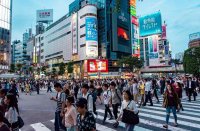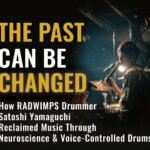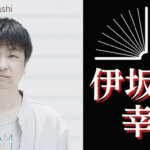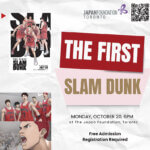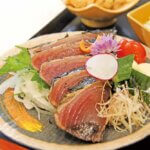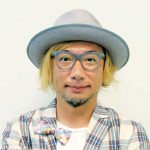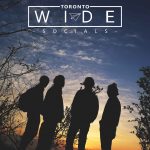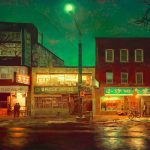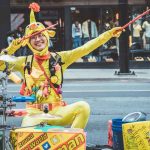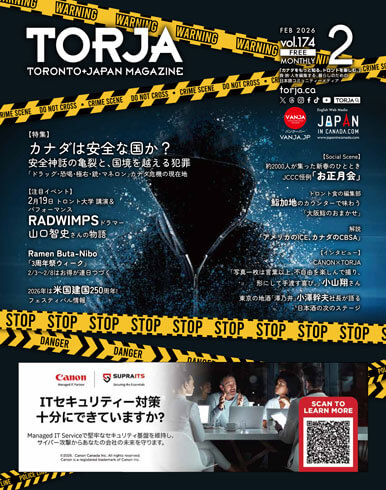On August 6, Hiroshima marked the 74th anniversary of atomic bombing. The annual ceremony took place at the Peace Memorial Park near Ground Zero. 50,000 people and representatives from about 90 countries, including the United States, Russia, and Britain attended. Despite heavy rain, due to a typhoon, local people of all ages visited the Peace Memorial Park early morning, in tribute to those who died in the bombing and to wish for peace.
What happened in Hiroshima and Nagasaki?
74 years ago, the US dropped the first of two untested uranium-235 gun-assembly bombs on the Japanese city of Hiroshima, immediately flattening the city, killing more than 70,000 people in the initial blast. More than 70,000 died from radiation exposure. A second bomb followed three days later and killed 40,000 more in Nagasaki.
“The impact of the bomb was so terrific that practically all living things—human and animal –were literally seared to death by the tremendous heat and pressure set up by the blast,” Tokyo radio said in the aftermath of the explosion, according to a report by The Guardian. “All the dead and injured were burned beyond recognition. Those outdoors were burned to death, while those indoors were killed by the indescribable pressure and heat.”
The damage did not end there—radiation released from the bombing caused further suffering. According to the Department of Energy’s history of the Manhattan Project, the five-year death total may have reached or even exceeded 200,000, as cancer and other long-term effects took hold. The US remains the only country to ever use an atomic bomb in war.
The New Hiroshima Mayor Calls for Elimination of Nuclear Weapons
The new Mayor, Kazumi Matsui, called for elimination of nuclear weapons and demanded Japan’s government to join a U.N. treaty banning such weapons in his peace declaration speech. ”I call on the government of the only country to experience a nuclear weapon in war to accede to the hibakusha’s request that the TPNW be signed and ratified,” Matsui said, according to Japan Today, referring to the Treaty on the Prohibition of Nuclear Weapons which was passed in July 2017 with the support of 122 nations. “Around the world today, we see self-centered nationalism in ascendance, tensions heightened by international exclusivity and rivalry with nuclear disarmament at a standstill,” “The power of individuals is weak, but added there have been many examples of collective strength achieving desired goals.”
The mayor quoted Mahatma Gandhi, the leader of India’s nonviolent independence movement against British rule, stating that “intolerance is itself a form of violence and an obstacle to the growth of a true democratic spirit.” Matsui also pointed out that “coming generations must never dismiss the atomic bombings and the war as mere events of the past.”
The new Mayor, to convey the reality of the atomic bombing, cited a tanka poem written by a woman who survived the bombing at the age of 5 in the declaration:
“A blood splashing from her bobbed head, my mother turned into Asura with my sister in her arms (おかっぱの頭から流るる血しぶきに妹抱きて母は阿修羅に).”
Matsui added that the poem straightforwardly depicts the atrocity of how many citizens unrelated to the war fell victim under the mushroom cloud through the eyes of a 5-year-old girl. “I urge Japan’s leaders to manifest the pacifism of the Japanese Constitution by displaying leadership in taking the next step toward a world free from nuclear weapons.”
Prime Minister Shinzo Abe Declines the Request to Sign a U.N. Treaty
Unfortunately, Prime Minister Shinzo Abe declined to accept the request to represent the wills of survivors and sign a U.N. nuclear weapons ban treaty. Abe said, in his address at the ceremony, “Japan is committed to serve as a bridge between nuclear and non-nuclear states and lead the international effort, while patiently trying to convince them to cooperate and have a dialogue”, vowing to maintain Japan’s pacifist and nuclear-free principles, but not promising to sign the treaty.
As of today, Japan, which hosts 50,000 American troops and is under the U.S. nuclear umbrella, refuses to participate in the treaty.



